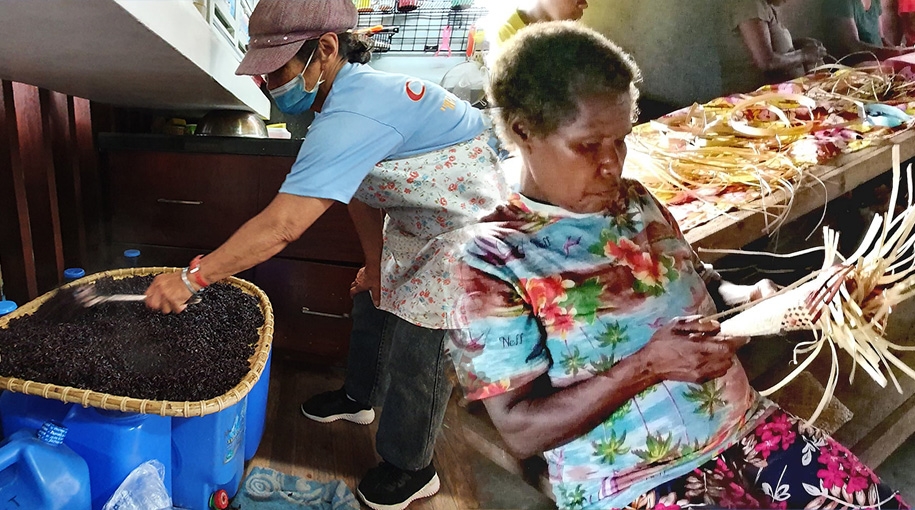The current cycle of the Indigenous Peoples Assistance Facility (IPAF) in Asia and the Pacific has been working towards the empowerment of indigenous peoples in designing and implementing their self-driven development initiatives, enhancing the capacity of Tebtebba as a regional hub, and improving indigenous peoples’ access to relevant knowledge. As of date, the IPAF-funded projects have varying levels of achievements and impacts as shared by the implementing organizations.
The IPAF-funded project implemented by Satunama Foundation in Indonesia supported indigenous women through the establishment of income generating activities. Indigenous women were organized in the villages and underwent training on coffee processing and product packaging. Through the project, processing equipment for coffee production were provided to the said indigenous women’s group.
“Today I visit Birun village for the last project monitoring. I'm happy to see that the women's group have already [sold] their coffee in the market. The facilities given by the IPAF project really helped them to initiate sustainable livelihood based on the local potency,” narrated Suharsih, project coordinator of Satunama Foundation.
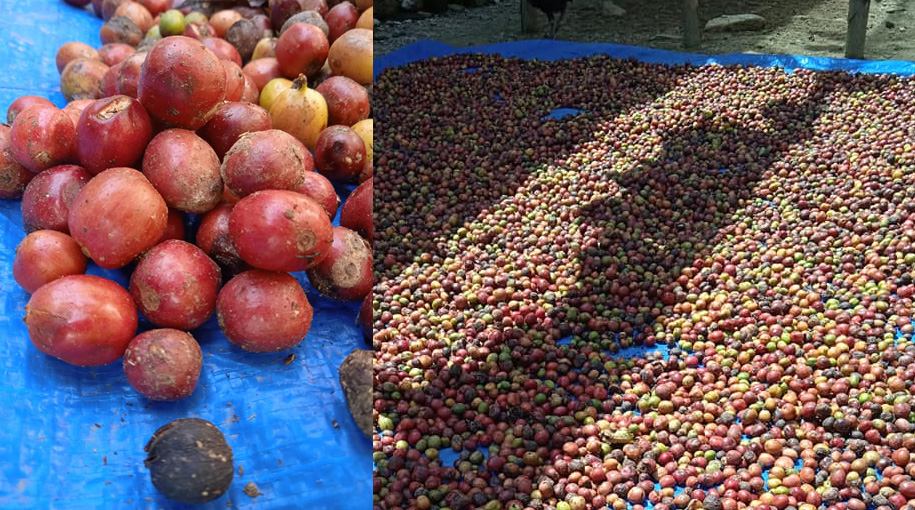
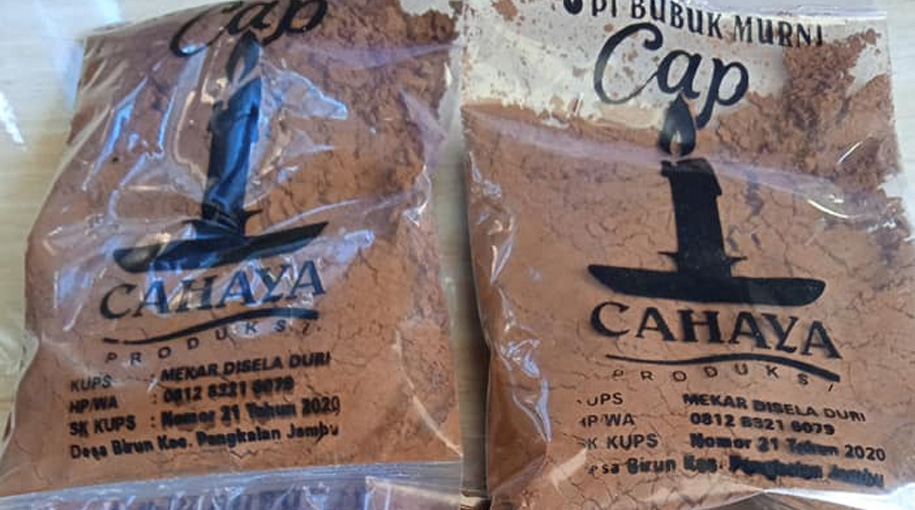
The women group in Birun Village, organized thru the IPAF Project 2326, is now selling coffee products in the market. (Credits to Project 2326 Satunama Foundation, Indonesia)
Likewise, Ni-Vanuatu women of Santo Island in Vanuatu underwent a training-workshop on weaving through the IPAF-financed project implemented by Edenhope Foundation in partnership with Santo Sunset Environment Network, allowing them to maintain one of their traditional practices while promoting the use and propagation of pandanus, also known as screw palm or pandan, a dioecious plant native to the Pacific region. This women-focused project is building the capacity of Ni-Vanuatu women in financial management and small business establishment.
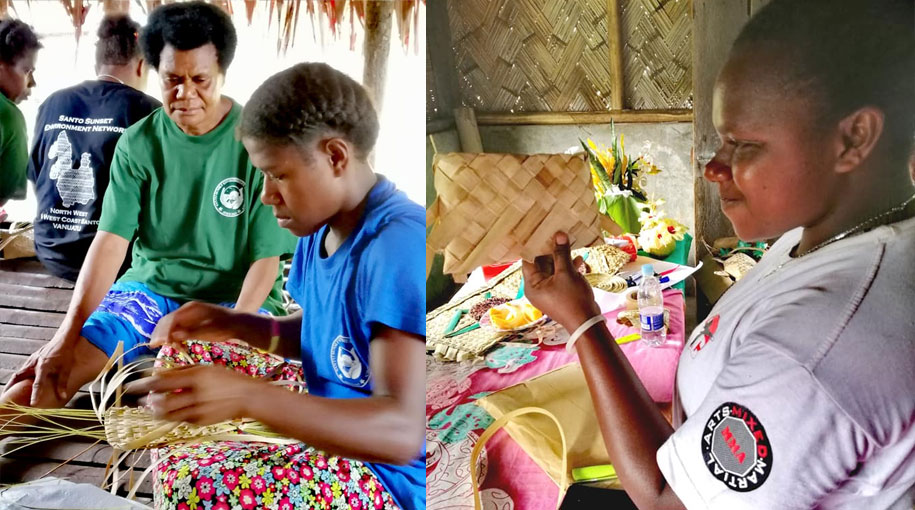
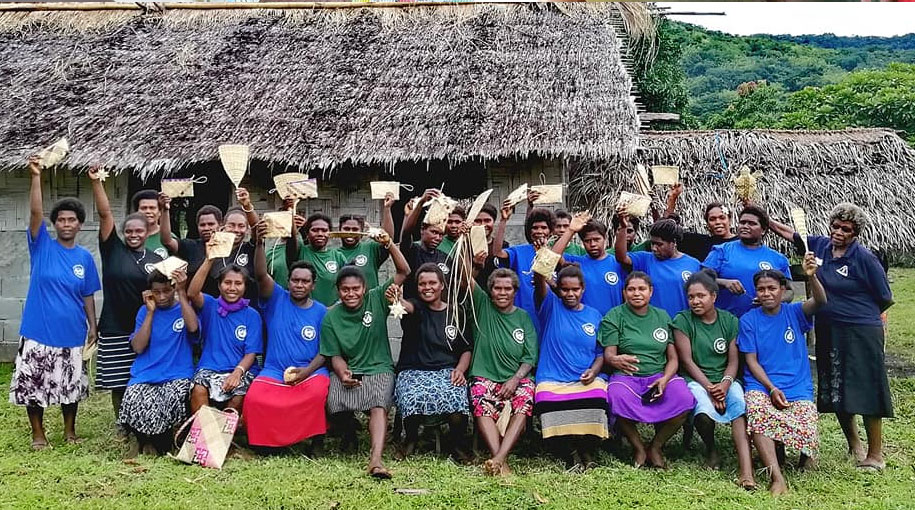
Around 70 Ni-Vanuatu women, thru the IPAF Project 2559, undertake training on weaving using pandanus plants. (Credits to project 2559 Edenhope Foundation, Vanuatu)
In Cambodia, the IPAF-funded project, Indigenous Peoples’ Rights to Food through Conservation of Indigenous Crops and Promotion of Traditional Farming, supported Highlanders Association to build a couple of community seed banks to preserve endangered indigenous seeds and crops, promoting their continuous propagation among indigenous peoples’ communities.
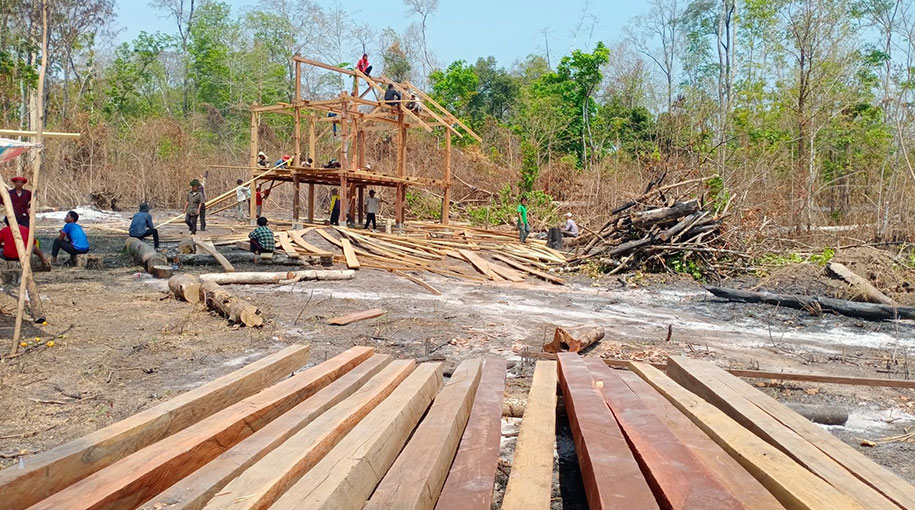
Construction of a seed bank is being supported by IPAF Project 2177 in Kambak Village promoting conservation of indigenous crops. (Credits to Project 2177 HA, Cambodia)
The Asia Young Indigenous Peoples Network, implementing the IPAF-supported project in the Philippines, organized a series of intergenerational learning activities, engaging indigenous youth to learn more about food preparation and traditional cuisines.
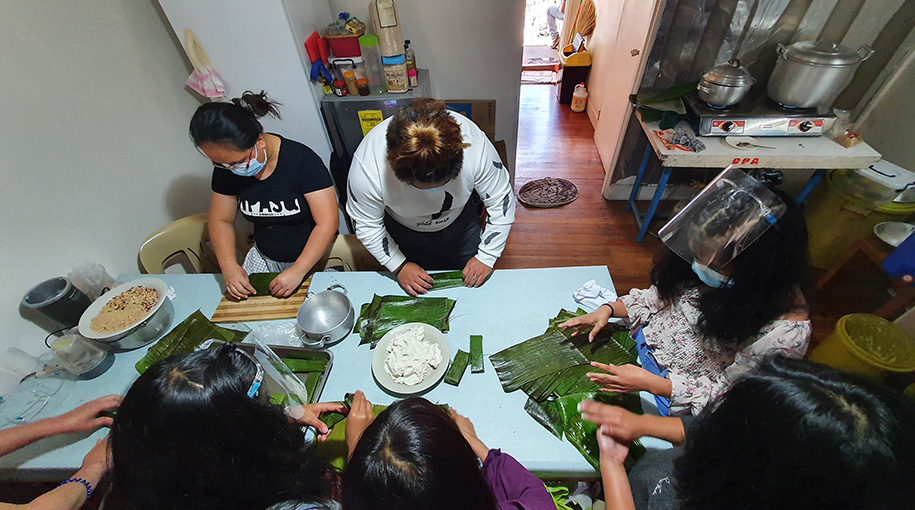
With the learning workshops supported by the IPAF Project 2092, Igorot young women are learning how to prepare inandila, a native glutinous rice delicacy in the Cordillera. (Credits to Project 2092 AYIPN, Philippines)
With the support from IPAF, through Tebtebba, these projects aim to promote sustainable livelihood and continuous capacity building for a number of indigenous peoples’ groups. At the same time, the revival of indigenous knowledge and practices becomes a major strongpoint, recognizing various indigenous cultures and their crucial contribution in addressing several challenges and issues related to access to land, climate change, food security, and livelihood.
The IPAF is established in the International Fund for Agricultural Development (IFAD). The IPAF current cycle is supporting 11 projects in 9 countries in Asia and the Pacific. The implementation of the projects will be completed this year.
[Banner picture: Credits to Project 2092 AYIPN, Philippines and Project 2559 Edenhope Foundation, Vanuatu]


